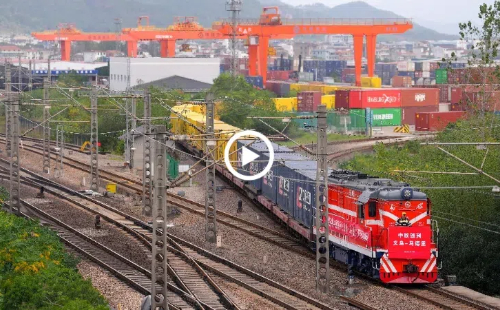Baidu, Geely team up to make smart electric cars
Chinese internet search giant Baidu Inc announced on Monday its plan to establish a company to produce intelligent electric vehicles, and auto manufacturer Zhejiang Geely Holding Group will serve as a strategic partner for the new company.
The new company, which will operate as an independent subsidiary of Baidu, will oversee the entire industrial chain, from vehicle design to research and development, as well as manufacturing, sales and service. Baidu will provide intelligent driving capabilities to power the passenger vehicles to be produced by the company, while Geely will contribute its expertise in automobile design and manufacturing.
In addition, Baidu will support the company's rapid growth with its full portfolio of core technologies, including Apollo autonomous driving, DuerOS voice assistant for Apollo and Baidu Maps. The new company aims to reshape intelligent vehicle offerings and bring about a revolution in intelligent transportation.
The two parties will collaborate closely in vehicle manufacturing and will leverage Geely's new sustainable experience architecture or SEA, a world-leading EV manufacturing platform, to jointly develop the next generation of intelligent vehicles.
"We have long believed in the future of intelligent driving and have over the past decade invested heavily in artificial intelligence to build a portfolio of world-class self-driving services. China has become the world's largest market for EVs, and we are seeing EV consumers demanding that next-generation vehicles be more intelligent," said Robin Li, co-founder and CEO of Baidu.
Li added as a top Chinese automaker with global reach, Geely has the unique experience and resources to design, produce and market energy-efficient, reliable and safe automobiles on a large scale.
He believed that by combining Baidu's expertise in smart transportation, connected vehicles and autonomous driving with Geely's expertise as a leading automobile and EV manufacturer, the new partnership will pave the way for future passenger vehicles.





 play
play